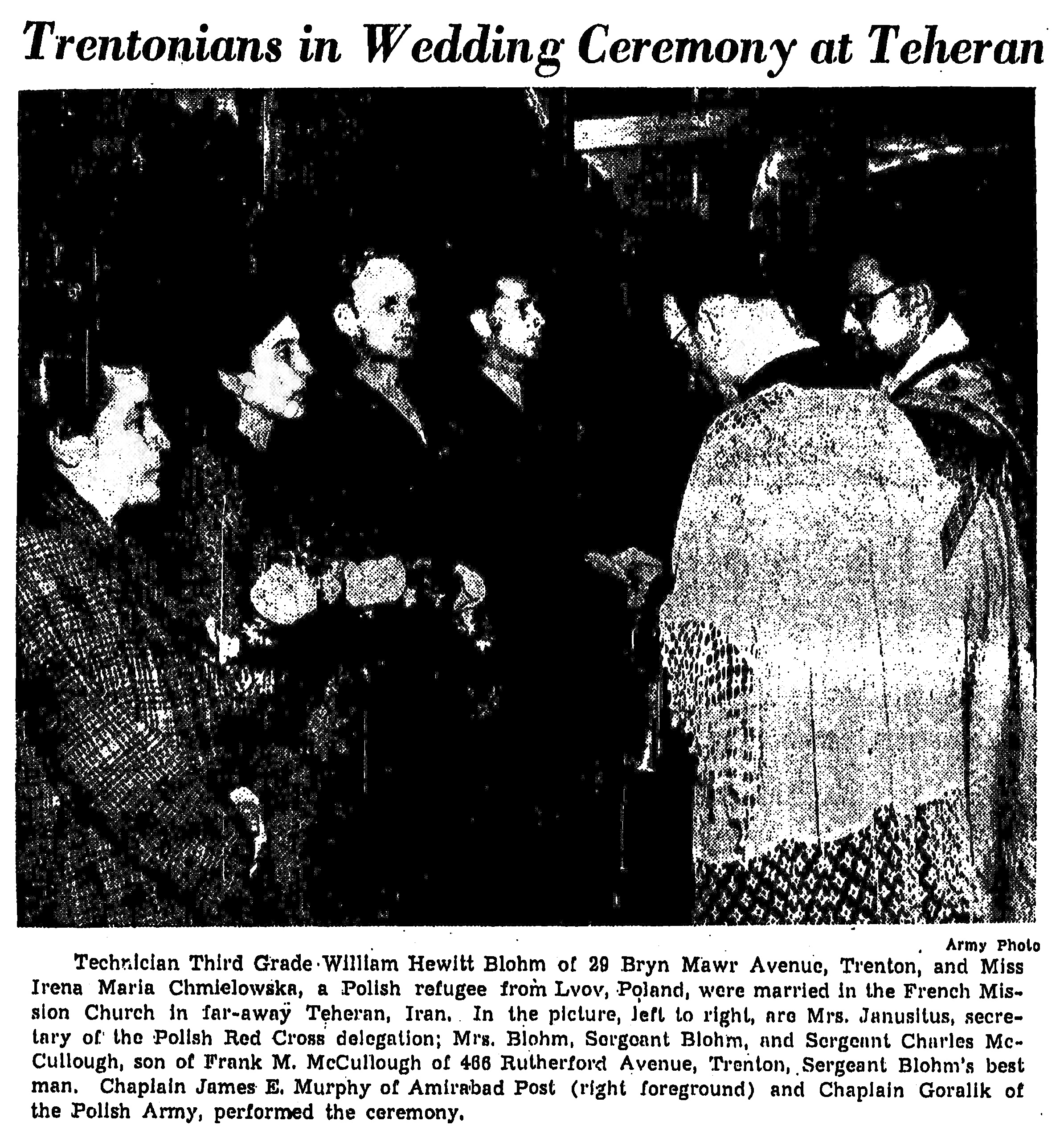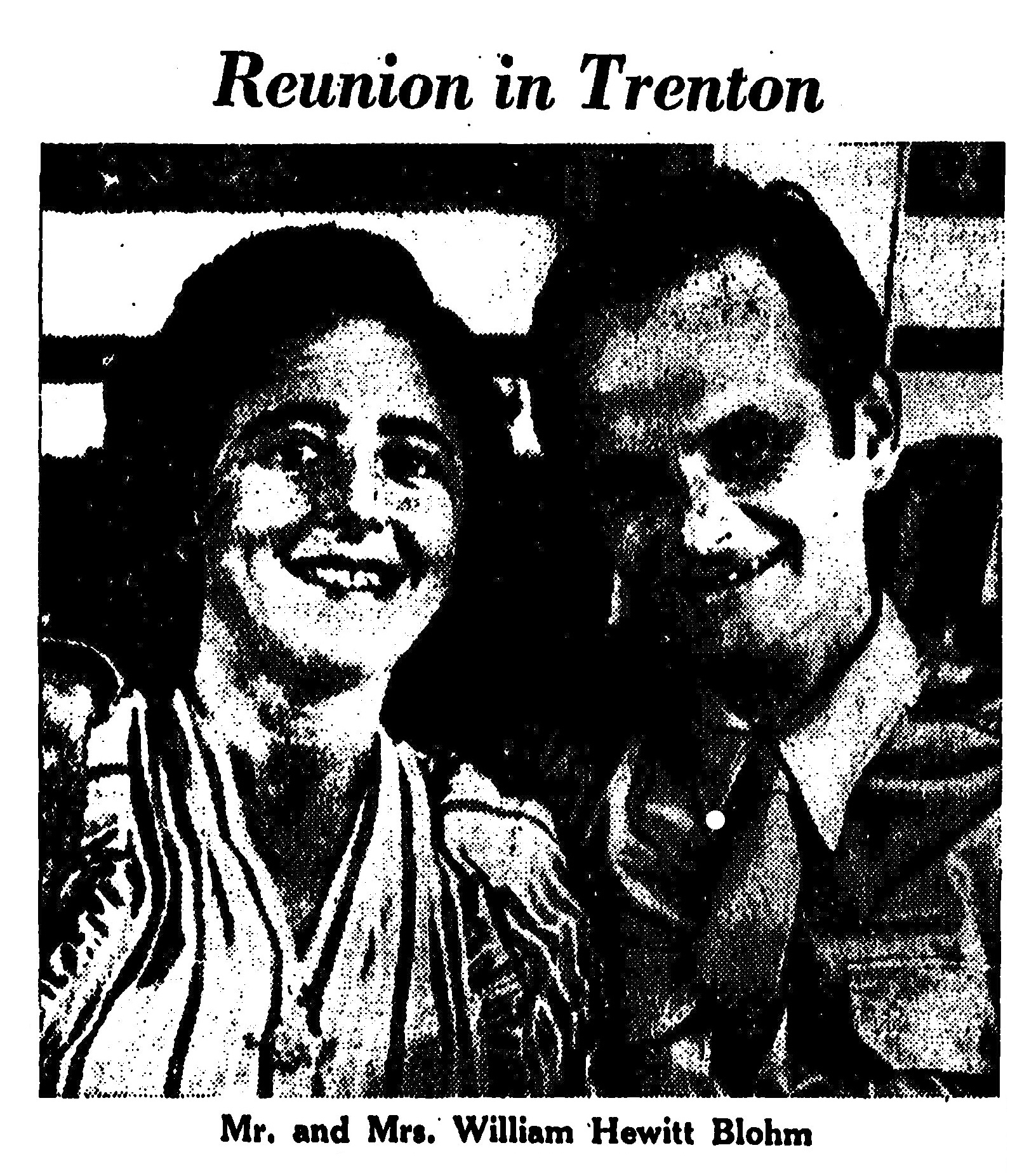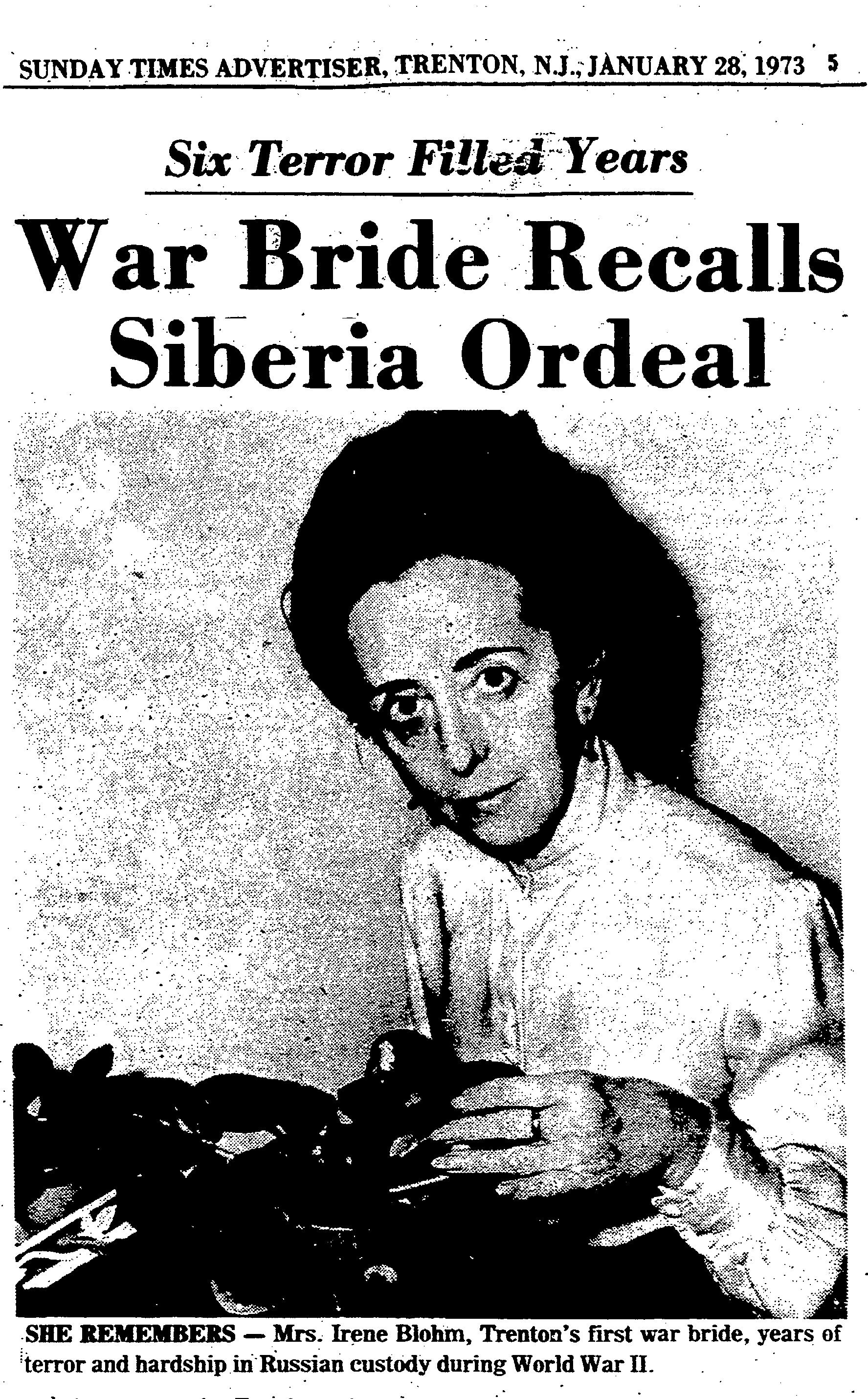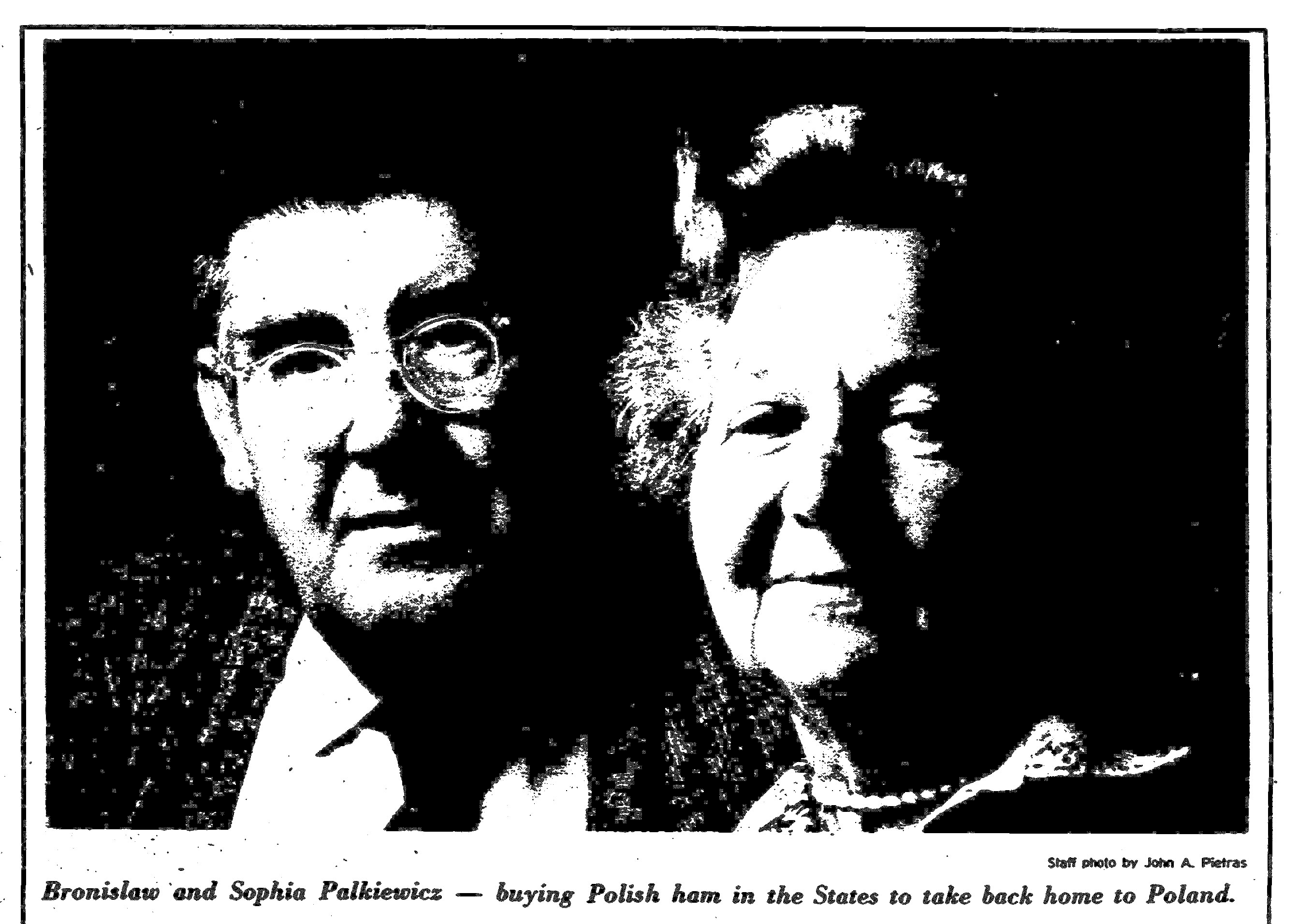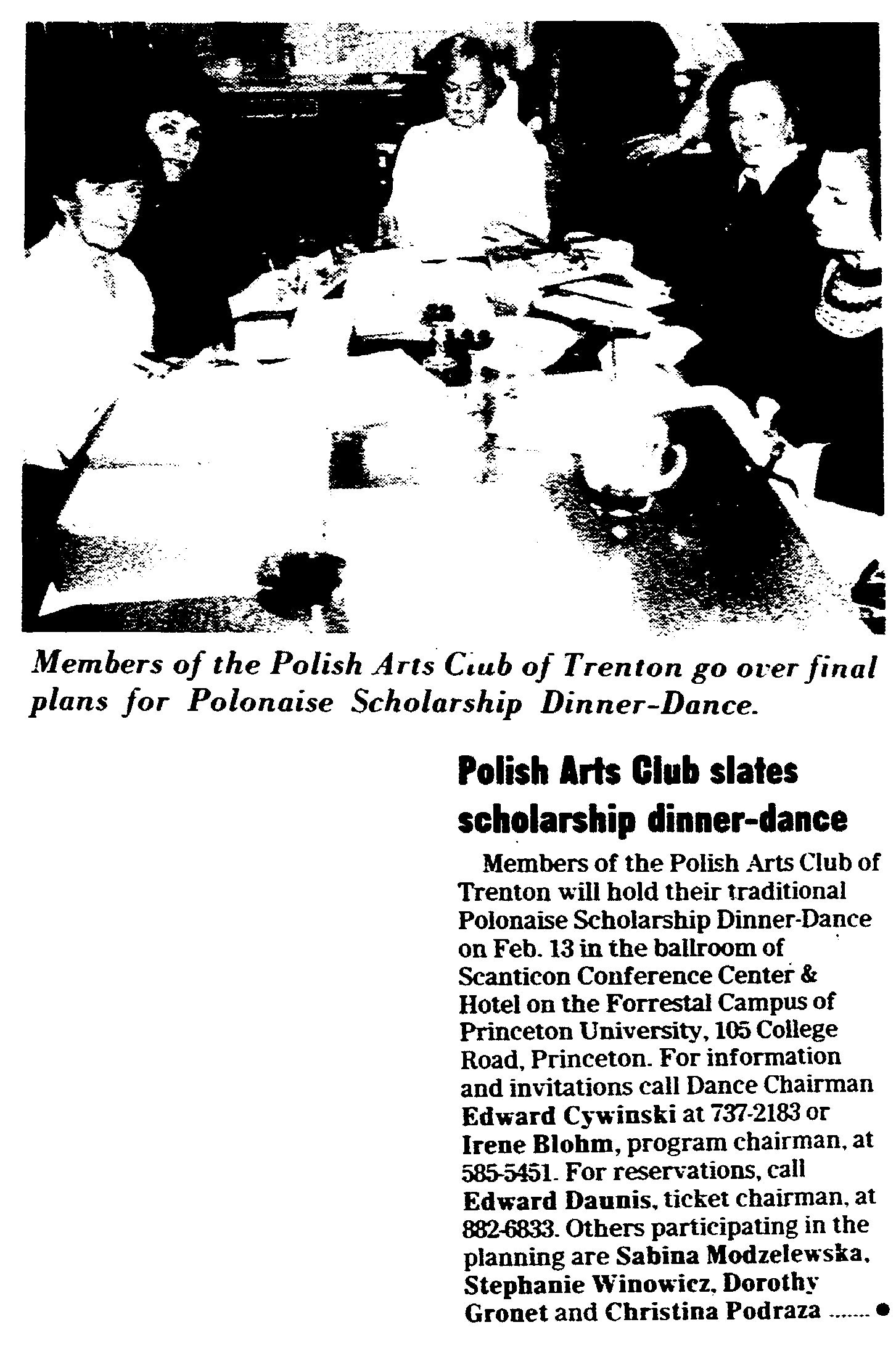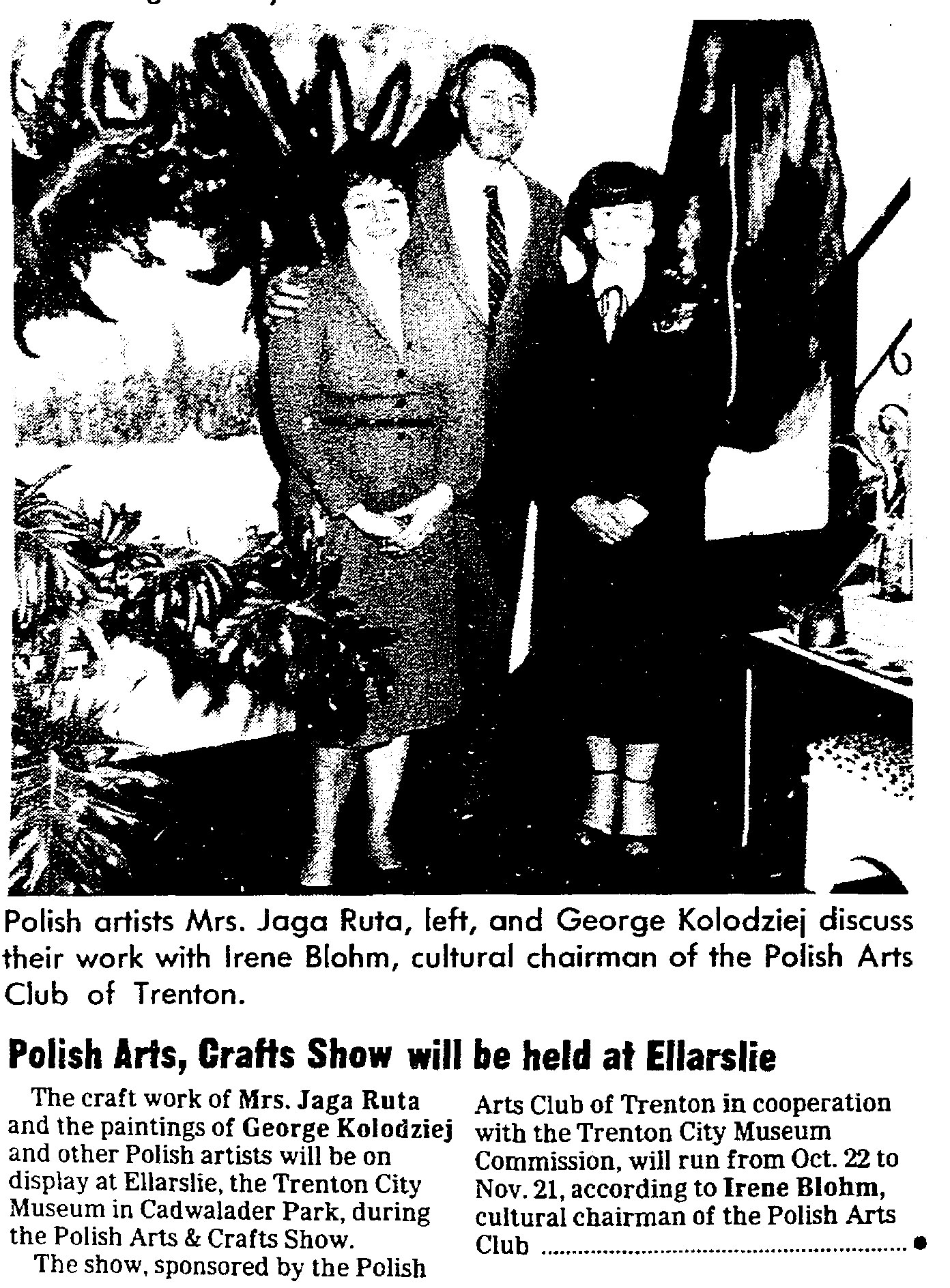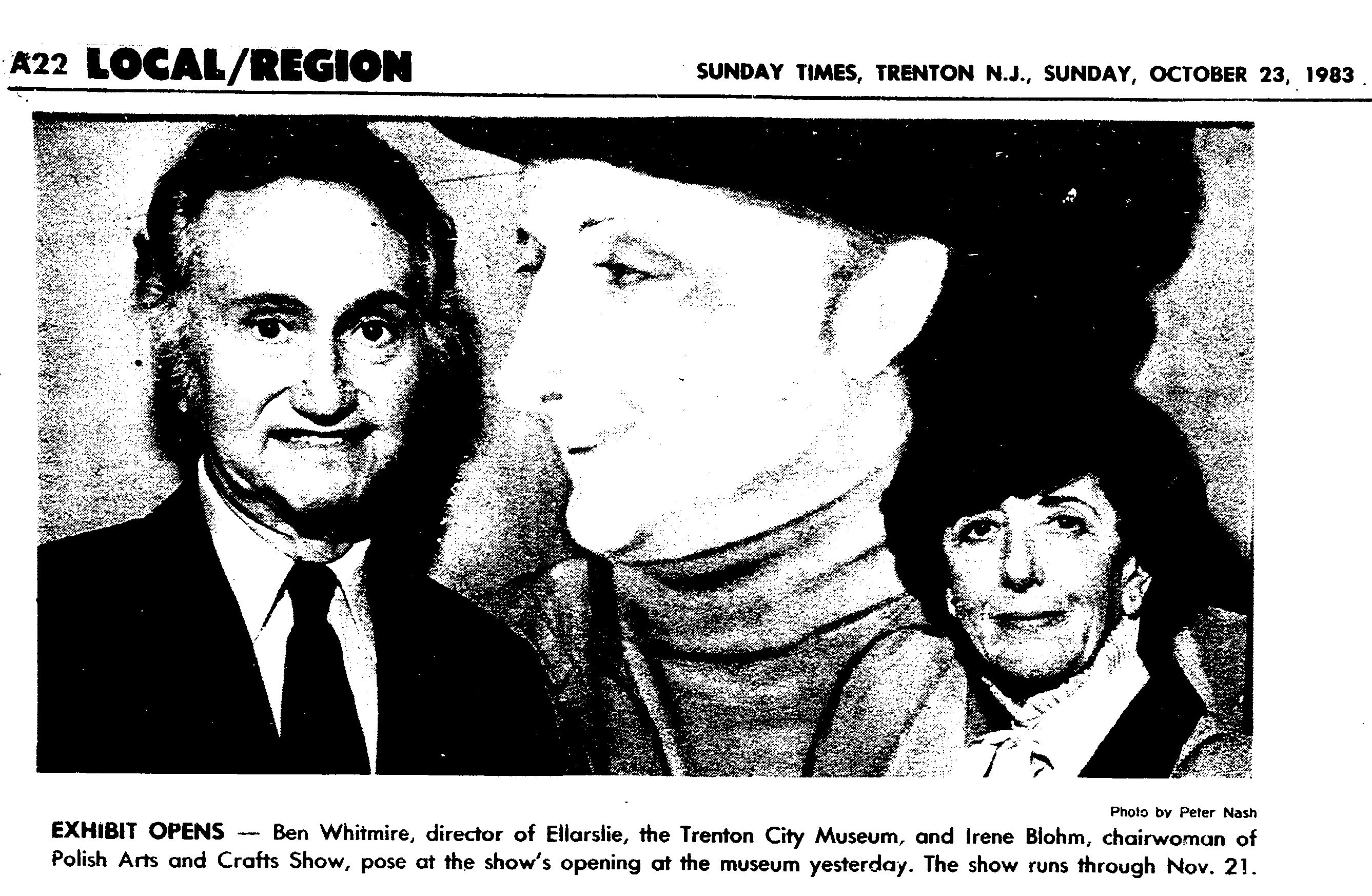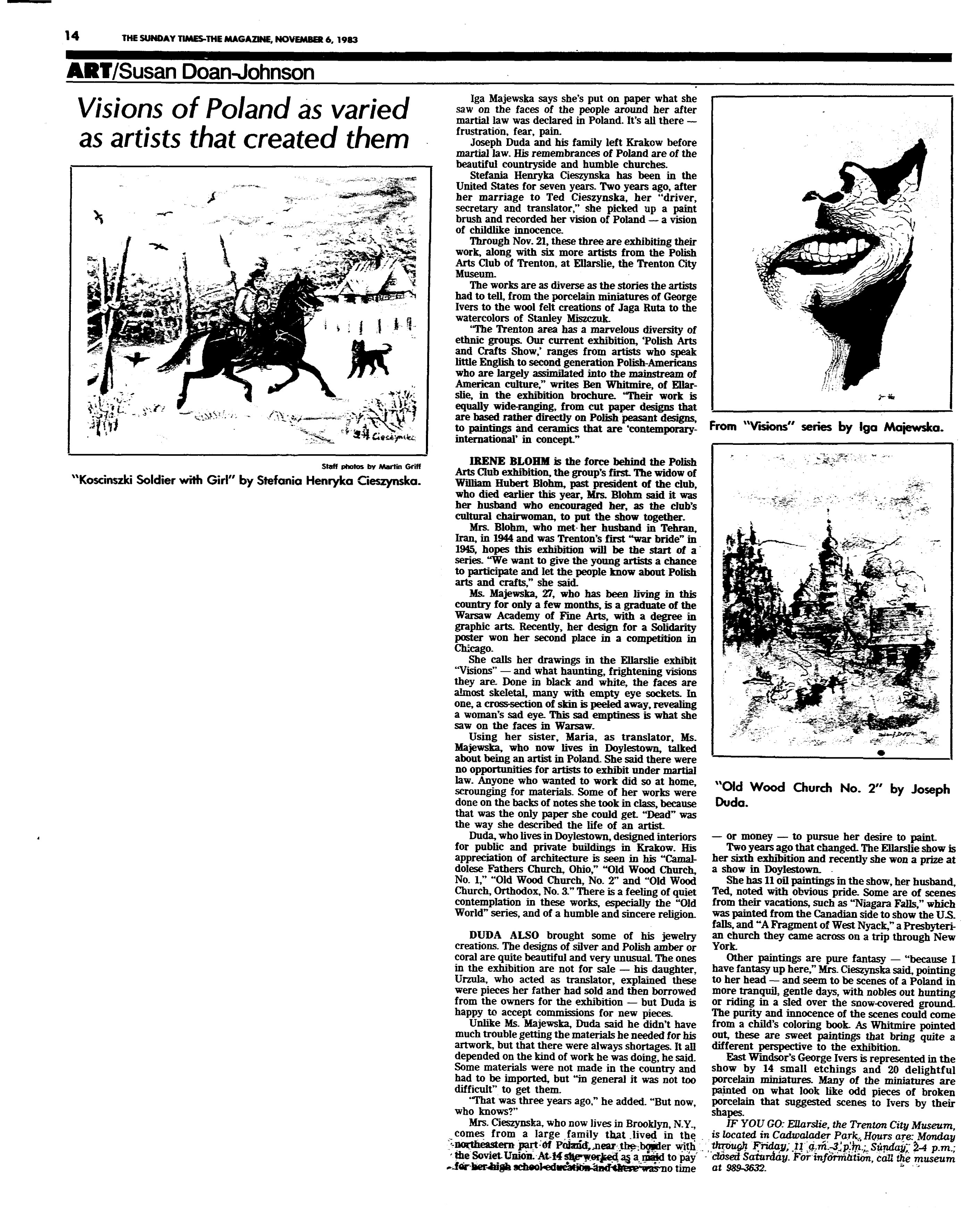A Long and Dangerous Journey
Be sure to see the news articles following this short profile!
William Hewitt Blohm and his wife Irena Maria Blohm were very active members of the Polish Arts Club. Bill served numerous terms as president of the club. Irena served as chair of the Cultural Committee for many years. She also served as chair of the Scholarship Committee, Scholarship Dinner Dances, Polish Arts and Craft Shows, and club sponsored fashion shows. Irena also held Polish dance group shows to benefit surgery for Polish children at Deborah Heart & Lung Center.
On February 17, 1945, Technician Third Grade William Hewitt Blohm of 29 Bryn Mawr Avenue, Trenton, N.J., and Miss Irena Maria Chmielowska, a Polish refugee from Lwów, Poland, were married at the French Mission Church in Teheran, Iran. A reception
followed at the Polish Red Cross Restaurant for 50 friends. The couple spent their honeymoon at Darband, a nearby mountain retreat.
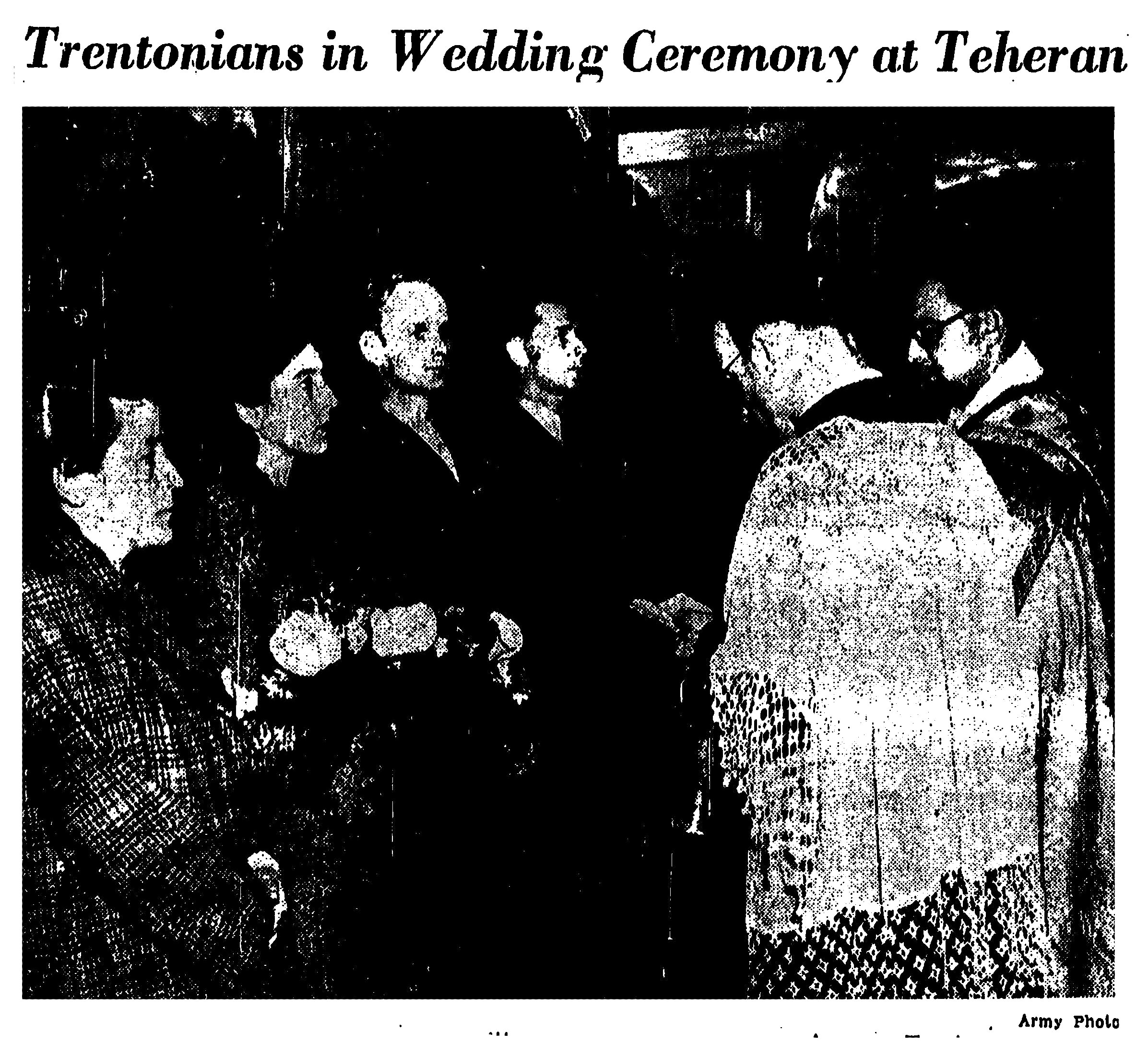 Sergeant William Hewitt Blohm was the grandson of Mrs. Josephine Hewitt. He was the chief photographer for the Office of Technical Information, Persian Gulf Command Headquarters and had served in the vital Persian Corridor supply line to Soviet Russia for two years.
Mrs. Irena Maria Blohm was the daughter of a Polish Army colonel who was killed in action during the German blitz in Poland. At the time of their marriage, she was employed by the Polish Red Cross to handle correspondence for the International Red Cross.
Sergeant William Hewitt Blohm was the grandson of Mrs. Josephine Hewitt. He was the chief photographer for the Office of Technical Information, Persian Gulf Command Headquarters and had served in the vital Persian Corridor supply line to Soviet Russia for two years.
Mrs. Irena Maria Blohm was the daughter of a Polish Army colonel who was killed in action during the German blitz in Poland. At the time of their marriage, she was employed by the Polish Red Cross to handle correspondence for the International Red Cross.
The young couple had met at a wedding of one of Blohm’s soldier buddies in Teheran. Bill was the first American the young lady had met. Bill didn’t speak Polish and Irena didn’t speak English. However, he had taken French class at Trenton High. Irena was a fluent speaker of that language. Bill remarked, “So we got along with that language.” Five months later they were married and it required five wedding certificates to make the ceremony legal.
Some 14 weeks later on May 30, 1945 Irena boarded a ship at the Persian Gulf port of Khorramshahr, the first leg of an 8000-mile journey to Trenton. She arrived on July 7 as Trenton’s first war bride. Bill had gotten approval of a return to the United States and on June 27 also started for home, a 30-day furlough and a reunion with his wife.
Her long and dangerous journey began when Irena was only 17 years old when the fighting came to her native town of Lwów, in Eastern Poland, in 1939 (now Lviv, Ukraine). First the Germans fought for the town, then the Russian soldiers moved in to so called “protect” the people.
Mrs. Blohm’s 23-year-old brother was a leader within the Polish underground, involved in smuggling the country’s leaders to Paris, where the original provisional government had been set up. Tipped off by spies, the Russian secret police came to the house and arrested him and, except for one brief visit in prison, they never saw him again. She learned that her brother was in the same prison with their first cousin, who said he had been tortured repeatedly. A woman reported that he had been put to death in Kiev (now Kyiv, Ukraine) in 1942, but this was never confirmed.
Soon Irena and her family were shipped off to Siberia. “The Russian soldiers went through the streets pulling people out of their houses shoving them on cattle cars,” she says. After an unbearable journey that took a few weeks, they arrived in Kazakstan. For three years they worked on dairy farms, surviving on skimpy daily rations. Many of them died.
Finally, the Russian government gave them so called “amnesty”, which didn’t permit them to leave the country but allowed them to travel. They lived in wet, underground tunnels and kept warm by burning dry bushes and bricks made from cow manure.
The group moved south to a warmer climate, where many died because their weakened bodies couldn’t accept the first fruits and vegetables they had eaten in years. They picked cotton for a living, getting paid by the pound, but they had to wait to pick the fields until the Russian soldiers had taken what they wanted.
Irena left her mother to meet up with the Polish Army, which was regrouping in Southern Russia. She recalled, “When I met up with the army, I thought I was back in Poland. I was so weak, they had food, but I couldn’t eat it.” After recovering from her ordeal, she enlisted in the army, was given a uniform and, because she was highly educated, was given a teaching job in the young soldiers’ school.
She was told to return for her sick mother immediately because the Polish Army was at last leaving Russia. In her frantic rush to retrieve her mother in the north, Irena recalled the kindness of the Russian people. “What the Russian government didn’t take from them, the Mogul tribes did,” she had recalled. “But the Russian people were kind to me. They fed me and invited me into their homes to stay overnight.”
When Irena got her mother to the train station for the ride south, some Russian policemen tried to stop them from boarding the train. Just as it was about to leave the station, she waved them aside, saying, “Everything’s alright, were going” and pulled her mother aboard the train.
They caught up with the Polish Army, traveled to a Caspian Sea port, then took a crowded ship to Teheran, Iran. She went to work for the Missing Persons Bureau of the Polish Red Cross. Her new found freedom was saddened by the death of her mother.
Bill and Irena eventually reached the United States and settled in the Trenton area. They put behind their ordeal and served the Polish Arts Club and larger community for many years in a variety of other ways.
This article was highly condensed by Kirk Everett from many newspaper articles published in the Trenton Times. The original newspaper articles are all found on this page. I encourage you to read the full stories and the six terror filled years that took Irena halfway around the world to a new life in this country.
Click on each picture for the entire news article.
|


